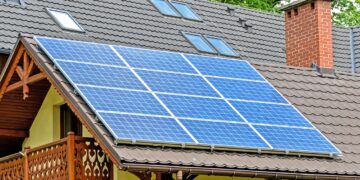Exploring Sustainable Futures: Hands-on Renewable Energy Projects for Students
As the world grapples with the challenges of climate change and the depletion of finite resources, the significance of renewable energy becomes increasingly paramount. Educational institutions are uniquely positioned to foster a new generation of environmentally-conscious individuals equipped not just with theoretical knowledge but practical skills too. Hands-on renewable energy projects illuminate the path to a sustainable future while engaging students in stimulating and impactful learning experiences.
Why Integrate Renewable Energy Projects in Education?
The integration of renewable energy projects into academic curricula is not only beneficial for environmental reasons but also enhances students’ technical skills, critical thinking, and understanding of complex global challenges. These projects offer a pragmatic glimpse into the application of concepts such as solar energy, wind power, and bioenergy, preparing students for future careers in these vital fields.
Furthermore, such initiatives promote teamwork, problem-solving skills, and innovation, empowering students to conceive and implement real-world solutions that could one day lead to significant environmental advancements.
Top Renewable Energy Projects for Classroom Engagement
Implementing renewable energy projects in the classroom can seem daunting due to perceived technical challenges or material costs. However, there are a variety of projects suitable for different age groups and educational settings. Here are some project ideas that can be adapted for various educational levels.
1. Solar Oven Creation
Building a solar oven is a fantastic project to introduce younger students to the principles of solar energy. This project utilizes everyday materials to build a functional oven that harnesses the sun’s energy to cook food. It provides a tangible demonstration of how solar energy can be converted into thermal energy. This activity not only educates but also results in a practical application that stirs interest and excitement among students.
Materials and Setup
Materials needed for the solar oven project include cardboard boxes, aluminum foil, plastic wrap, black construction paper, and insulation (e.g., old newspapers or cotton). Students can work in groups to design and build their solar ovens, experimenting with different constructions to see which design is the most efficient. Teachers can guide discussions on how improvements in design can increase efficiency.
2. Wind Turbine Model
Constructing model wind turbines introduces students to wind energy. This project can be scaled for complexity depending on student age, ranging from simple models made of paper and straws to more sophisticated designs involving electronics and mini generators.
Learning Objectives and Outcomes
This project helps students understand aerodynamics, energy conversion, and electricity generation. By adjusting blade design, positioning, and materials, students discover how these variables affect the turbine’s efficiency. Older students can delve deeper into the electrical aspects, attaching a small generator to their turbine to power a light bulb or charge a battery.
3. Bioenergy from Compost
Exploring bioenergy is essential as it offers solutions to waste management and energy production. A project on creating bioenergy from compost teaches students about anaerobic digestion and microbial activity.
Experiment and Environmental Impact
Students can set up compost bins to observe how organic waste is decomposed and can be used to produce methane, a viable source of bioenergy. Discussions can revolve around the reduction of landfill use, methane emissions, and how bioenergy fits into the broader landscape of renewable energy solutions.
Maximizing the Impact of Renewable Energy Projects
- Interdisciplinary Learning: Incorporate elements from science, technology, engineering, and mathematics (STEM) to enrich the learning experience and highlight the multifaceted nature of tackling environmental issues.
- Community Involvement: Extend project activities beyond the classroom. Involve the community in renewable energy discussions and activities, fostering broader impact and awareness.
- Sustainability Challenges: Encourage students to think critically about the limitations and challenges of implementing renewable energy solutions at different scales.
Conclusion
Hands-on renewable energy projects offer a unique blend of practical experience and theoretical knowledge, essential for empowering the next generation of environmental stewards. Through projects like solar ovens, wind turbines, and bioenergy from compost, students not only grasp complex scientific concepts but also develop a personal connection to the solutions of tomorrow’s environmental challenges. As educators and innovators, our role is pivotal in nurturing an ethos of sustainability and resilience among students, paving the way for a future where clean energy is not just imagined but realized.
By engaging with such projects, students develop a profound understanding of the potential of renewable resources, preparing them to be at the forefront of the transition to a sustainable world.







